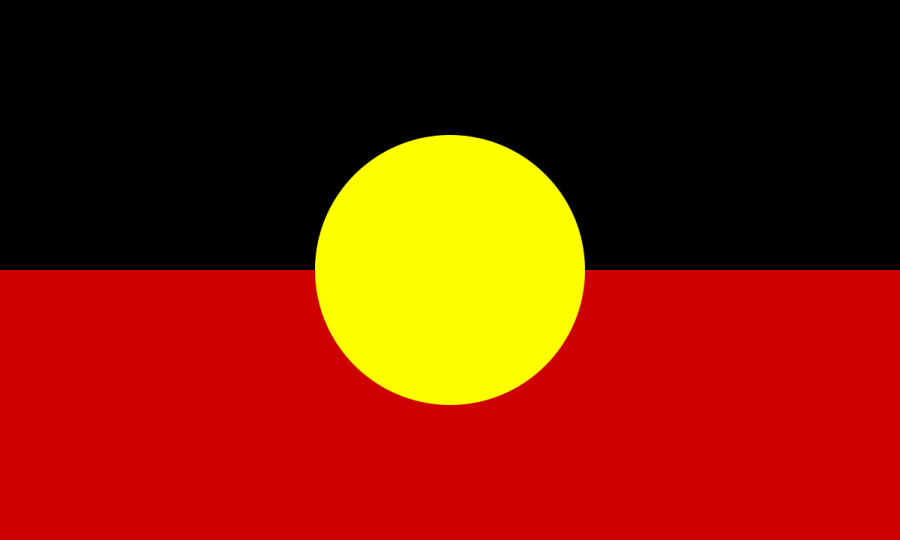They call themselves yalu, an Aboriginal (Yolngu) word meaning "bird’s nest." But in this case yalu is a metaphor for the learning or nurturing place that six unemployed Yolngu women--Lawurrpa, Garngulkpuy, Bepuka, Yungirrnga, Djalingirr, and Wirriny Wirriny--have created at Galiwin’ku to help community youth grow and "teach them to fly." Representing the Warramiri, Birrkili, Wangurri, and Djambarrpiuyngu Mala (clans), they have united in the pursuit of one principal goal: to combat the steady decline in recognition by authorities of Yolngu health, education, and governance priorities, and a corresponding decline in the health and wellbeing of community members. Self-confidence and interest in Yolngu culture are low, especially among youth.
"Yalu Marrngikunharaw" began when Lawurrpa was contracted by the Aboriginal Tropical Health Unit in Darwin to explore connections between health and education in the community. How could the current malaise affecting youth--substance abuse, drug addiction, teen suicide, television and video-induced apathy--best be approached? Outside intervention or inside intervention? The abandonment of the new and a return to the old ways? Many ideas were generated as a consequence of the research and community consultations, and a holistic plan of action that emphasized cooperation and reconciliation emerged. Yalu was born.
"We Yolngu people are Australians," says Garngulkpuy. "We know that Western (balanda) education is very important. But so too is Yolngu education--and Yolngu knowledge and understandings in both health and education are not given the priority that they should be by [the] government." Adds Bepuka: "We believe in two-way education: Aboriginal and non-Aboriginal. But we have been leaning too heavily just on the balanda side. We want to bring the life back to the Yolngu people so we can all live together as equals. There is no desire to do away with balanda education, but rather we want to lift up the Yolngu ways so that people are proud of who they are and where they come from.” And the work begins at home, says Lawurrpa: "To build a strong, healthy community we have to do more than just send our kids off to school. Parents have to teach them--to discipline them--and provide them with a healthy environment. In my father’s day we knew the Law, we understood the need for discipline, and we were healthy. We want the youth to come back to our way--the Yolngu way."
As a result of a successful fundraising campaign, the ladies of Yalu have been able to host a wide range of activities both in the Galiwin’ku school (Shepherdson College) and community, as well as in remote outstations. One of the most successful recent undertakings involved the escorting of 10 petrol-sniffing youngsters to the Unbirri island outstation for a two-week retreat where they were shown various hunting techniques, heard stories from elders about the need for raypirri, or discipline, and learned about the land’s importance to the Yolngu. On their return to Galiwin’ku, Yalu helped the young men and women find employment with community leaders in gardening and other projects. Throughout Galiwin’ku, Yalu performs a similar role. As Yungirrnga says: "Each Tuesday and Thursday we go to the school to teach the young about Yolngu culture. We take them hunting, show them how to weave, and help connect them with the old people so they can spend time together, just sharing."
Yalu’s philosophy is simple, Garngulkpuy says: "The egg in the nest is trying to hatch and the mother nurtures the young chick so it can learn to fly. Then she hands it over to the men, for the next stage of [its] development. We call ourselves Yalu because it is the women who are leading this cultural revival with the youth at Galiwin’ku. We want them to know their responsibilities both as Aborigines and as Australians. Yalu encouraged the Yolngu to celebrate Australia Day on January 26. We hosted a great party that brought all the people at Galiwin’ku together--black and white--and promoted our message of unity and harmony. We are consumed--all of us--by negative thoughts, always thinking about our problems and how the government mistreats us. But we didn’t want to call it an Invasion Day Remembrance, as some Aborigines do. We should be thinking positively. We want people to respect each other--to show compassion to one another. We say ‘Let’s be strong. Let’s walk together and march on.’"

